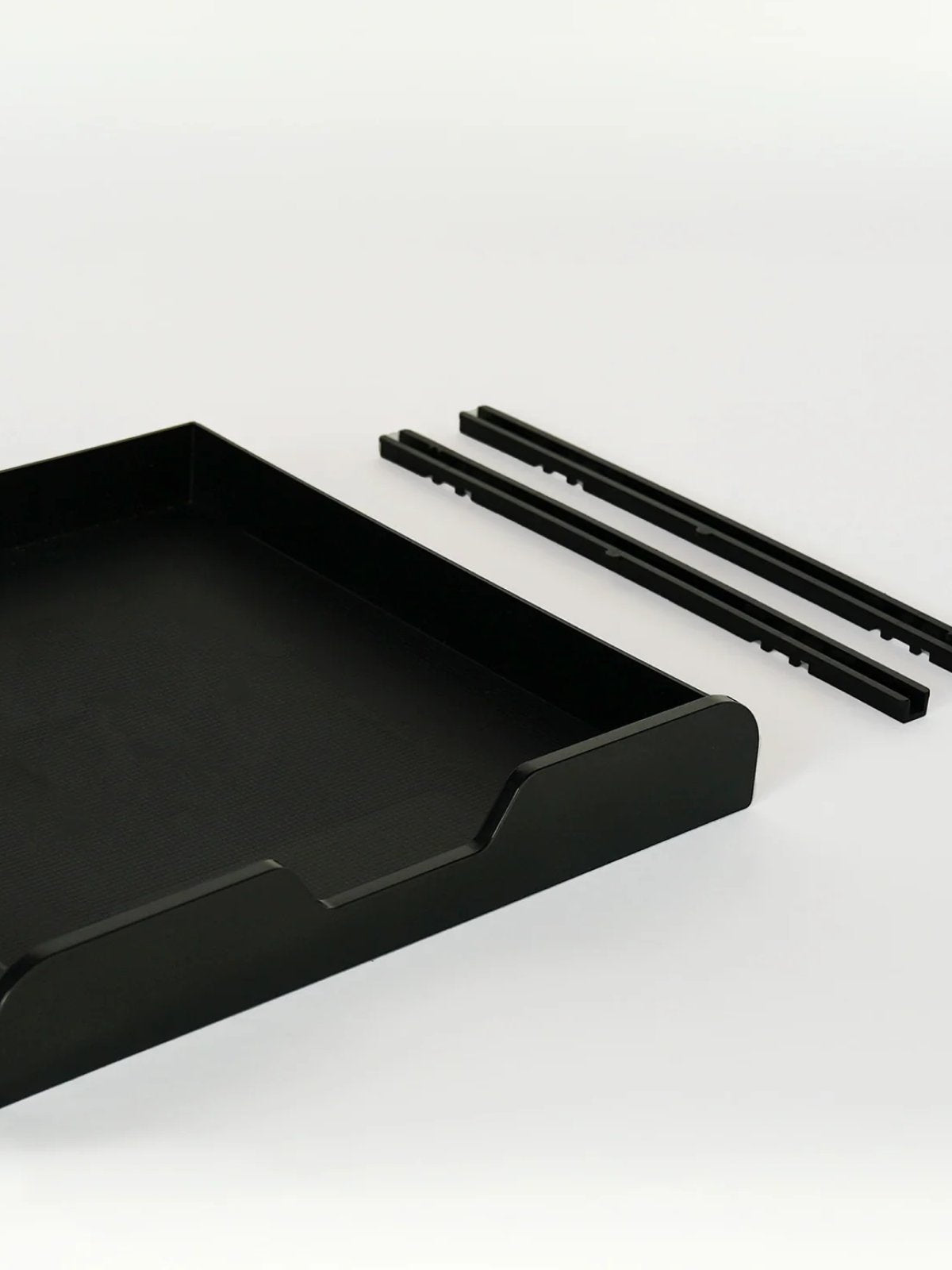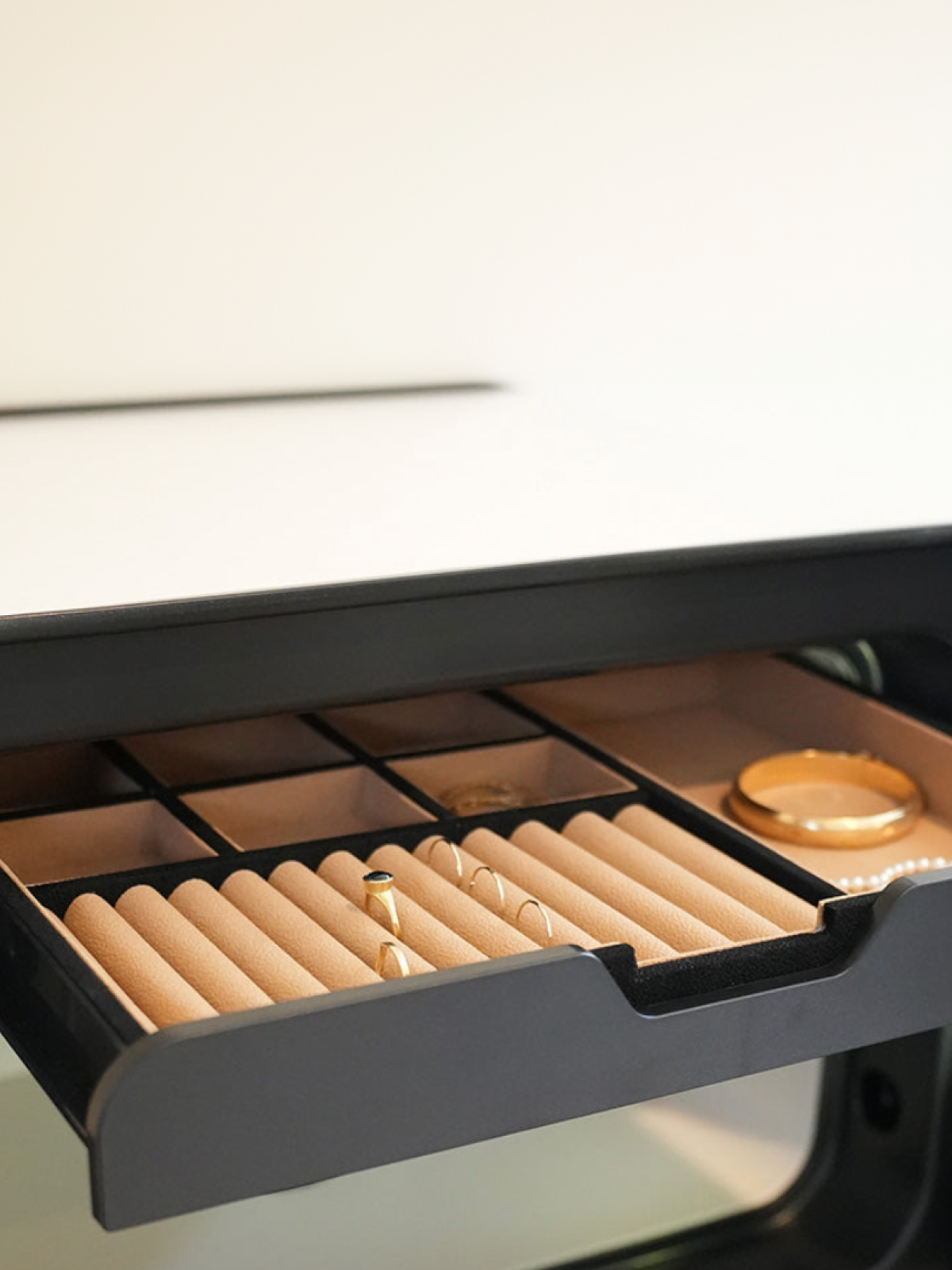Despite societal progress towards digitization, physical money remains a cornerstone of daily life. While credit cards, banking apps, and online payments dominate, nearly a quarter of Americans routinely keep cash on hand for emergencies, privacy, or convenience. Where and how to store cash at home are deceptively simple questions, because while it seems straightforward, keeping cash in the wrong place could mean watching your savings disappear overnight - to theft, fire, or just poor planning. In this article, we’ll examine common ways to store money, myths that lead to costly mistakes, and why, after considering all options, we believe that the safest place to keep cash at home is in a small fireproof safe.
Benefits of keeping cash at home?
While electronic payment methods have surged, there are still many benefits to keeping cash at home:
- Emergency preparedness. When power grids fail, ATMs go offline, or natural disasters strike, card readers and mobile payment systems stop working. We have all seen rolling blackouts used to protect the electrical grid and extensive outages due to hurricanes or other natural disasters. Cash becomes king in these situations.
- Privacy. Unlike digital transactions, cash leaves no electronic trail. People who value confidentiality or want to avoid unnecessary data tracking often turn to physical currency.
- Convenience. Having money available without relying on bank hours or ATM locations or limits provides flexibility.
- Budgeting. The envelope method of budgeting, often referred to as the “envelope system” or “cash stuffing,” has increased in popularity recently thanks to TikTok. Individuals advocate that using this system to allocate cash for household expenses results in a tangible understanding where each dollar earned is spent.
For all these reasons, we support keeping cash on hand, provided it is locked up in a well built fireproof safe, such as the Cocono 20 Classic small fireproof safe. This also highlights why finding the safest place to keep cash at home matters. To take advantage of any of these benefits of storing cash at home, you are likely to have more cash than you want to carry around in your wallet. Additionally, unlike digital deposits, cash doesn’t come with insurance; lose it, and it’s gone for good. This leaves many people asking where is the safest place to put your money.
The best place to hide money: how a small fireproof safe stacks up
Let’s compare a small home safe against popular alternatives – are these actually great places to hide money?
- Envelopes and hiding spots (under a mattress, in the freezer). While many internet sites tout their ability to teach you the best hiding spots for money, rest assured that would-be thieves are also reading these articles. Hiding spots are frequently easier to find than you think and unprotected once found.
- Diversion “safes” (soda cans, cleaning bottles, urns). Fun, but not fireproof or organized. It is less convenient than you may think to pry cash out of a decoy cleaning bottle with your fingernails. Additionally, thieves know this trick.
- Lightweight lockboxes. We often see people opt for a lightweight lockbox over a real safe. Unfortunately, these money boxes are neither fireproof nor as secure as you might think. These lightweight lockboxes are unfortunately often stolen in their entirety. Thieves will take the box and everything in it.
- Bank safe deposit boxes. While safe deposit boxes are secure, they are also inconvenient, uninsured, and require ongoing fees.
Against these options, a solid tiny fireproof safe, such as these, offers durability, discretion, and 24/7 access.
Side-by-Side Comparison of Cash Storage Options
Here’s a clear breakdown of the pros and cons of various places to hide money or secure it:
Option |
Theft Protection |
Fire Protection |
Accessibility |
Cost |
Privacy |
Overall Verdict |
|
Hiding spots (mattress, freezer, books) |
Very low |
None |
High |
Free |
Moderate |
Unsafe and obvious, not good places to hide cash |
|
Diversions (soda cans, containers) |
Low |
None |
High |
Low |
Moderate |
Clever but ineffective; not good places to hide cash |
|
Lockboxes |
Moderate |
None |
High |
Low |
Moderate |
Easily stolen if not bolted down; again, not good places to hide cash |
|
Safe deposit box |
Very high |
Very high |
Low (bank hours only) |
Recurring fees |
Limited (bank rules) |
Secure but impractical for cash accessibility |
|
Small fireproof safe |
High |
High |
High (24/7) |
One-time purchase |
Full |
Best choice overall |
Common but risky places to hide cash at home
A lot of people assume clever hiding spots for money provide sufficient protection. Unfortunately, thieves and accidents prove otherwise. If you were considering any of these locations, we recommend reconsidering.
- Under the mattress. It’s an old cliché for a reason – a surprising number of people hide cash under their mattress, and burglars know it.
- Freezers and pantries. Once a “secret” idea, thieves now routinely search food containers. Plus, humidity can damage money notes over time.
- Inside books or DVD cases. Criminals sweep shelves looking for altered spines or light, hollowed-out objects.
- Desk drawers or filing cabinets. Obvious and easy targets.
- Bedside tables. Many, many people hide cash in their bedside table. This is often the first place checked by would-be thieves.
All of these options rely on secrecy, not actual protection. Secrecy buys time but doesn’t address the real threats of theft and fire. If you want real security, you need a better plan.
Are safe deposit boxes the best place to keep cash?
While safe deposit boxes seem like the most logical place to hide money, reality complicates the picture:
- Restricted access. Safe deposit boxes are only available during business hours. In emergencies, you can’t get your money immediately.
- Cash policies. Many banks discourage or even forbid storing cash in safe deposit boxes. They’re designed for documents and valuables, not money.
- No FDIC insurance. While deposit accounts are insured up to legal limits, anything in a safe deposit box - including cash - has no federal insurance coverage. Obtaining extra coverage is not always an option, and if it is, it is often expensive.
- Fees. Renting a box adds recurring costs, making cash storage unnecessarily expensive.
In short, while banks provide excellent security, they aren’t practical for cash storage. Cash needs to be both protected and accessible - something safe deposit boxes can’t guarantee.
The safest place to keep cash at home
After weighing the risks of various hiding places for money and the limitations of banks, the answer becomes clear: the safest place to keep cash at home is in a small fireproof safe.
Tiny fireproof safes offer the best combination of protection, convenience, and cost-efficiency:
- Theft resistance. High-quality safes are designed to resist forced entry. Burglars don’t typically have the time or tools to succeed, especially if the safe is bolted down.
- Fire protection. A safe with a substantial fire rating can protect cash from one of the most common household disasters.
- Discretion. A tiny fireproof safe can be hidden in closets, bolted to floors, or concealed within cabinetry.
- Controlled access. With digital locks, keys, or biometric fingerprint access, only trusted users can open it.
No other option to hide money - whether a shoebox, diversion can, or safe deposit box - matches this balance of features.
Explore Cocono Fireproof Safes
Why smaller is smart: the advantage of tiny fireproof safes
Don’t assume bigger is always better when it comes to safes; the best safe is one that suits your particular needs. When the goal is to secure cash at home, for instance, a tiny fireproof safe can be the best choice for a few reasons:
- Practical installation. Smaller safes are easier to move and secure without the need for professional movers.
- Secrecy. A large safe can stand out while a compact safe blends in and avoids attention.
- Purpose-built. A tiny fireproof safe is optimized for storing bills, passports, and essential documents.
- Value. You don’t need to break the bank to protect cash effectively. While it’s important to use a real safe - not a lockbox - when securing cash, choosing a tiny fireproof safe can enable you to select a safe that prioritizes security over size.
The safest place to hide cash doesn’t need to overwhelm your living space. If you only want to store cash, passports, and a few documents in your safe, a compact, well-built safe is ideal.
Understanding fire ratings
Fire ratings vary greatly on safes. It is important to understand what the appropriate level of protection is when choosing a tiny fireproof safe. Read more about fire protection here.
How to store cash safely at home
Buying a compact safe is only step one - to maximize security and safely store cash:
- Bolt it down. Prevent thieves from carrying a small safe off. All safes – regardless of size - are more secure when bolted down.
- Keep your safe where you will use it. If your safe is so inconvenient to access that you don’t use it, you may as well not have a safe. A benefit of a tiny fireproof safe is that they can often be installed on a secure shelf, keeping them at a comfortable height in a closet or pantry.
- Use it consistently. Don’t scatter bills and documents around the house; in an emergency, you need to be able to locate things quickly and easily.
In conclusion, the safest place to keep cash is at home in a small fireproof safe.
A tiny fireproof safe shields your money from burglars and flames, while still providing immediate access in emergencies. Cocono small home safes offer true security; they are private, cost-effective, and available on your schedule.




